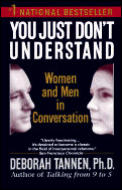
Subtitle: Facing Humanity’s Wrongs and the Implications for Social Activism
Recommended to me by: Amy Bennett
This book is a brilliantly written educational tool, including full transparency about the techniques it is using to bring the reader new ideas in the face of very sophisticated defenses. The first few chapters earnestly present the risks of reading the rest of the book, and offer practices to remain grounded and centered while reading stories that question basic assumptions about our reality.
Vanessa Machado de Oliviera uses stories from her own life as a mixed-race person in South America who now works in academia, in addition to deep political analysis to describe the twists and tricks of modernity, the way it consumes us and alters our thinking so that it seems inevitable and unquestionable. She uses metaphors and exercises to encourage new ideas to take root.
One of the exercises is to imagine oneself as a bus with varied passengers, and to pay attention to who is driving, who is giving suggestions to the driver, and who is in the back of the bus, not directly affecting the choice of direction, but still present. She asks, where is modernity on your bus, and what does it have to say.
I thought about that as I biked to an errand, and at first modernity seemed very distant. Then I realized it is standing by the driver and talking constantly about what I’ve done wrong and how I need to be productive and earn enough to deserve to live, etc. etc.
Modernity is tricky and slippery and we’ve all been steeped in it, so even when we think we have renounced and defeated it, we are engaging in battles and black & white thinking that are part of it. Thus we want to honor it both outside and inside ourselves as it goes through its death throes and makes way for something new that is hopefully more nourishing and healthy for us all.
I got this book from the library, but I think I need to buy a copy. It is a book to sit with and revisit and go back to. Highly recommended
Author’s website including videos of the author discussing her work.





